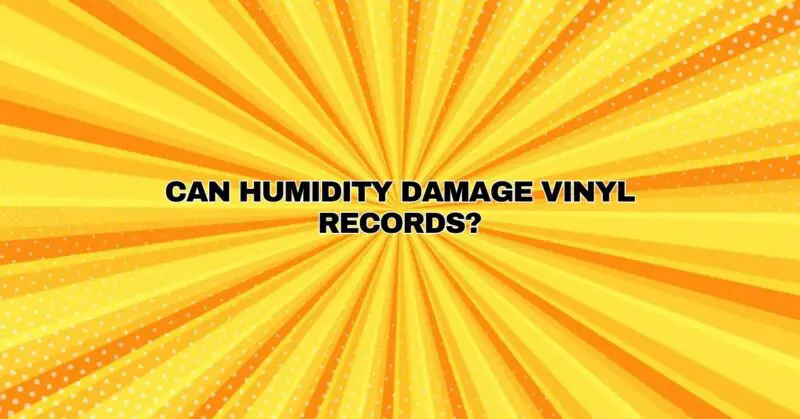Vinyl records, celebrated for their analog warmth and nostalgic allure, continue to captivate music enthusiasts and audiophiles around the world. Proper care and storage are vital to preserving the quality and longevity of your vinyl collection. Among the various environmental factors that can impact vinyl records, humidity is a significant concern. In this comprehensive article, we will explore the potential risks associated with humidity, how it can damage vinyl records, and the best practices for maintaining an ideal humidity level to protect your cherished analog treasures.
Understanding the Impact of Humidity on Vinyl Records
Humidity, the level of moisture present in the air, plays a critical role in the preservation of vinyl records:
- Warping: Excessive humidity can lead to warping of vinyl records. When vinyl absorbs moisture from the air, it can soften, causing the record to warp or deform. Warped records may not track properly on a turntable and can result in audio distortion.
- Mold and Mildew Growth: High humidity levels create a conducive environment for the growth of mold and mildew on both the record surface and its cover. Mold and mildew can irreversibly damage records and album covers, affecting their playability and visual appeal.
- Paper Damage: Album covers and inner sleeves, often made of paper or cardboard, are susceptible to moisture damage. High humidity can cause paper to become wrinkled, discolored, or deteriorate over time.
- Label Damage: Moisture can damage the paper labels on vinyl records, causing them to peel or become illegible. This can affect the record’s collectible value and aesthetics.
- Sticky Records: In some cases, high humidity can cause records to become sticky or tacky to the touch, making it challenging to handle and potentially damaging the stylus during playback.
Best Practices for Maintaining an Ideal Humidity Level
To protect your vinyl records from the potential damage caused by humidity, consider the following best practices:
- Maintain Relative Humidity (RH): Aim to maintain a relative humidity level of 40-50% in the storage area for your vinyl records. This range helps prevent warping and minimizes the risk of mold and mildew growth.
- Use Dehumidifiers: If you live in a region with high humidity levels or during humid seasons, consider using dehumidifiers in your vinyl storage area. Dehumidifiers help reduce excess moisture in the air.
- Store Records Vertically: Storing records vertically, as opposed to horizontally, allows for better air circulation and reduces the surface area exposed to potential moisture.
- Avoid Basements and Attics: Basements and attics are prone to fluctuations in temperature and humidity, making them less than ideal for vinyl storage. Choose a stable, indoor location for your collection.
- Sleeve Protection: Use high-quality anti-static inner sleeves and polythene outer sleeves to provide an extra layer of protection for your records and album covers.
- Inspect Regularly: Periodically inspect your vinyl records and covers for signs of moisture damage, mold, or mildew. Early detection can help prevent further deterioration.
- Clean and Dry Records: If records are exposed to humidity, clean and thoroughly dry them before returning them to their sleeves and storage.
Conclusion: Preserving the Analog Treasures
Humidity can indeed damage vinyl records, causing warping, mold growth, and other issues that compromise the quality and longevity of your collection. By diligently maintaining an ideal humidity level within the recommended range of 40-50% and following the best practices outlined in this article, you can protect your cherished analog treasures. Whether you’re a seasoned vinyl collector or a casual listener, ensuring proper humidity control is a small but crucial step in preserving the analog warmth, pristine sound quality, and visual appeal of your vinyl records for generations to come.

